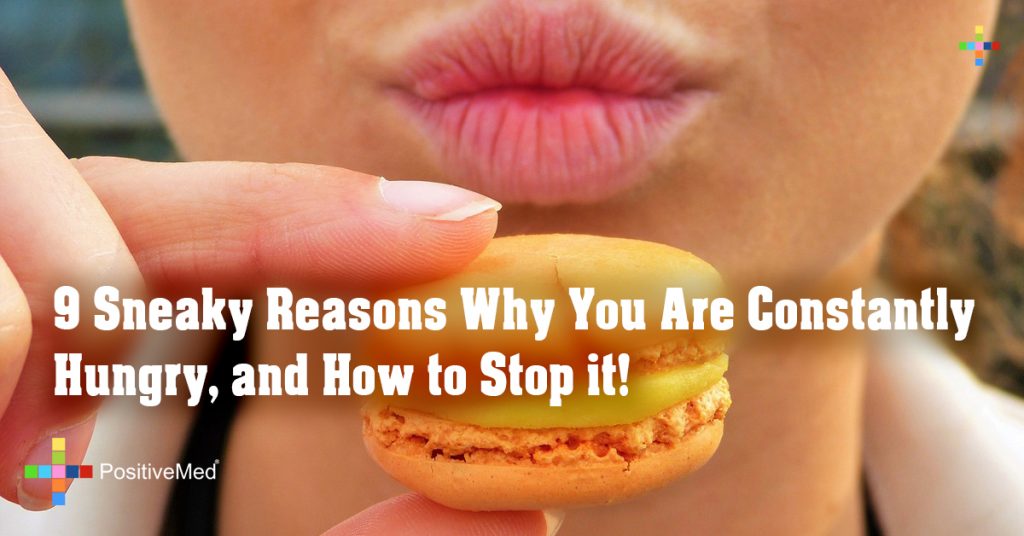
9 Sneaky Reasons Why You Are Constantly Hungry, and How to Stop it!
Within a completely healthy body, hunger is the physiological response to an individual needing calories. Unfortunately, there are countless variables that will affect the feeling of hunger and continued snacking will increase a patient’s risk of obesity, heart disease, type 2 diabetes, and a variety of other serious medical problems. Here is a closer look at 9 sneaky reasons why you might not be able to stop the hunger pangs.
1. A Love of Diet Soda
Drinking practically any beverage will force the body to produce certain chemicals and hormones in anticipation of calories. In the case of diet soda, these calories never come and the person will feel hungry until they do eat.
2. Minor Dehydration
Minor dehydration is often mistaken for hunger. Those that find themselves feeling constantly hungry should keep a bottle of ice water nearby to see if that helps curb the hunger pangs.
RELATED ARTICLE: 8 Tips to Stop Overeating
3. A Lack of Sleep
Failing to get enough sleep can affect one’s hunger in two ways. Not only will the body produce less leptin (a hormone that makes us feel full), but it will also overproduce ghrelin (a hormone that makes us feel hungry).
4. Stress
Food is often used as a coping mechanism for those that are feeling stressed. Unhealthy foods that flood the mind with dopamine are especially enticing when an individual is feeling tense.
5. Skipping Breakfast
Skipping breakfast will force one’s metabolism to slow down in order to conserve energy. This natural reaction can alter eating habits for 24 hours or longer as the body goes into a mild state of shock.
6. Alcohol
Countless studies have shown that alcohol and hunger are closely intertwined. Consuming alcohol before or during a meal will increase the production of ghrelin and could lead to overeating.
RELATED ARTICLE: Why Overeating Doesn’t Make You Fat (and What Does)
7. Pre-Diabetes
Type 2 diabetes is one of the most common diseases in the world, and the precursor to this medical condition is pre-diabetes. Those that are at risk of developing diabetes may struggle with constant hunger due to fluctuations in their insulin levels.
8. Boredom
Boredom takes place when we do not have enough stimuli that will force the brain to produce dopamine. In order to combat this, we often subconsciously look for ways to produce additional dopamine such as eating.
9. Prescription Medication
Practically everyone is going to be prescribed medication at some point in their life. Unfortunately, 2 out of 5 prescription medications now list hunger as a possible side effect.
The feeling of hunger is an exceptionally important physiological response. Being able to determine the difference between actual hunger and hormonal fluctuations will help you maintain a healthy weight and prevent overeating.





